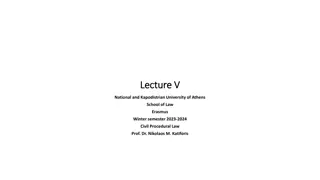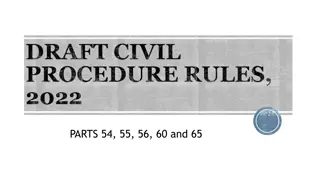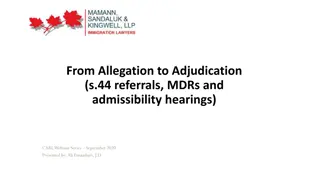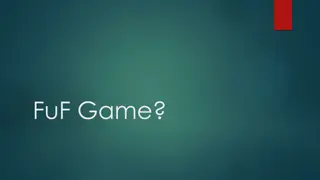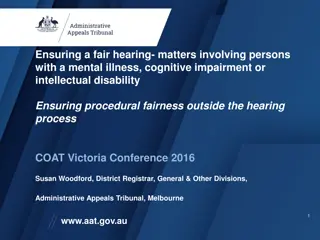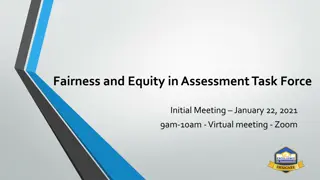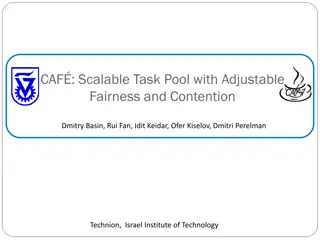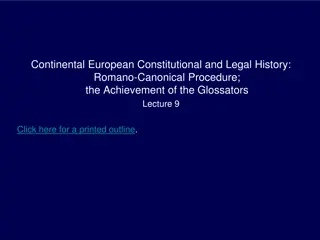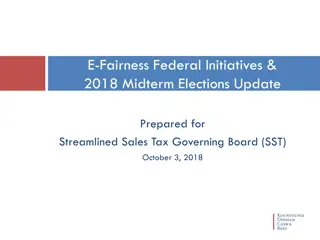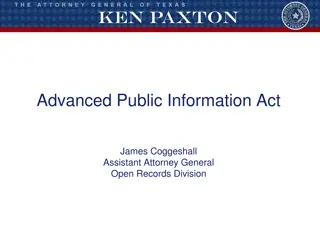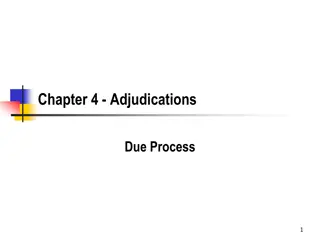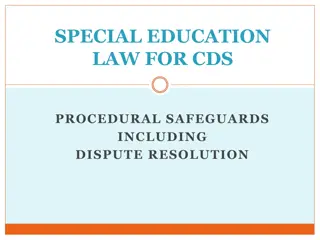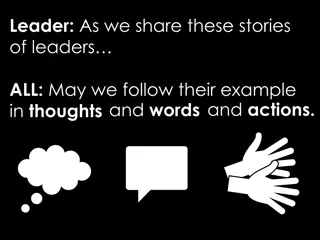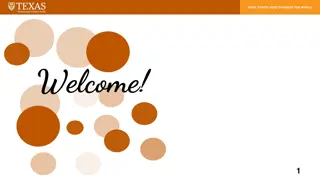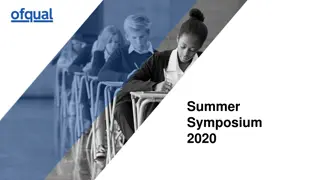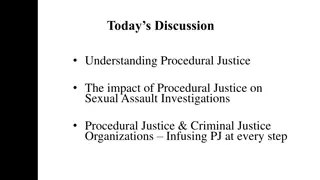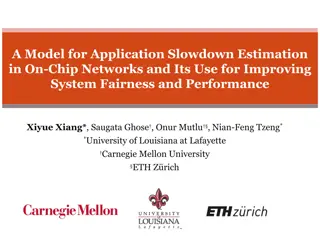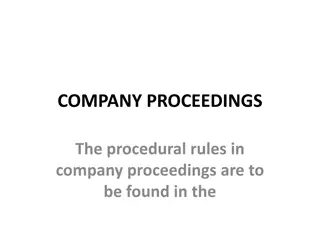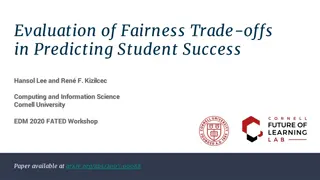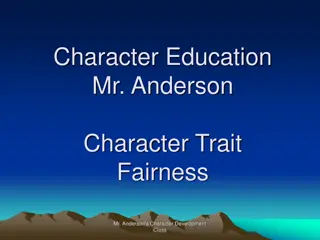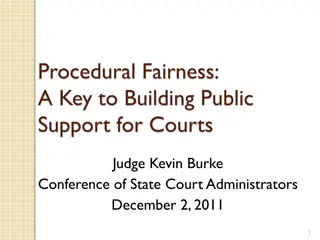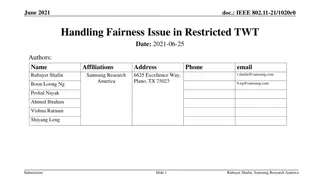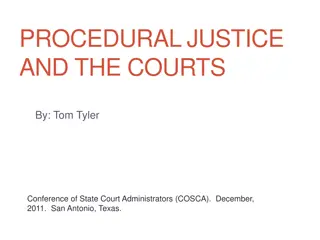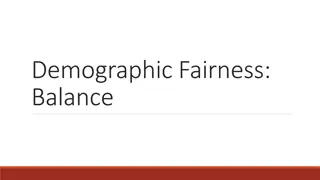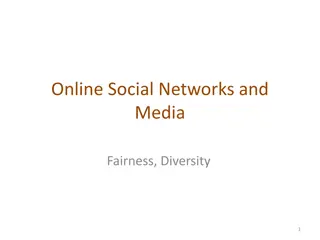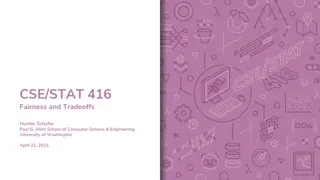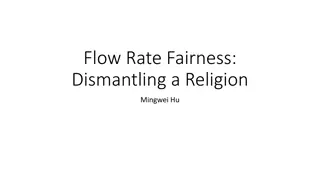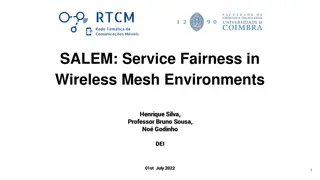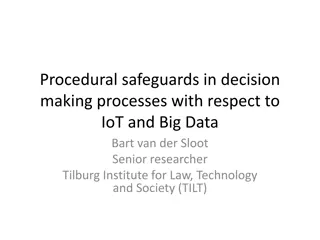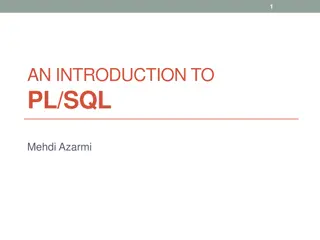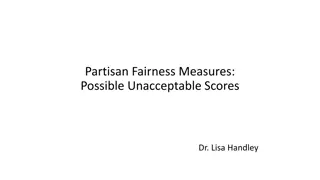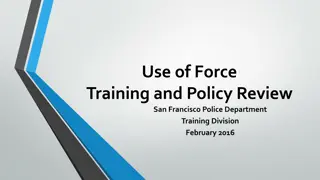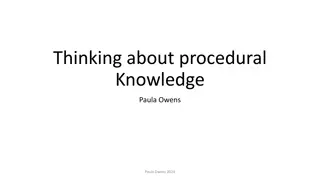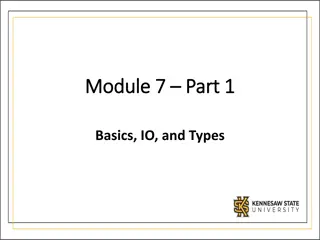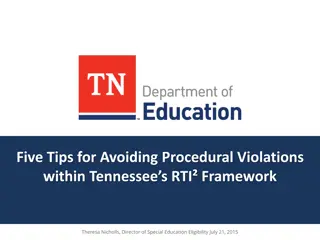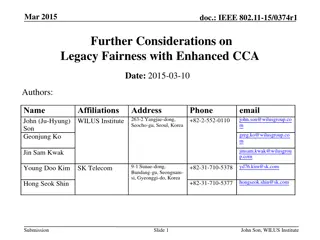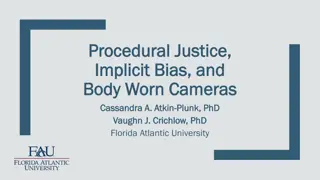Understanding Procedural Safeguards for Students with Disabilities
This information delves into the procedural safeguards for students with disabilities receiving special education services, covering topics such as laws governing procedural safeguards, parents' rights and responsibilities, abbreviation glossary, and the required Notice of Procedural Safeguards unde
1 views • 37 slides
Proceedings for Provisional Remedies in Civil Procedural Law
Greek legal theory distinguishes between conservatory and regulatory provisional remedies to secure substantive rights or provisionally arrange disputed situations. These remedies are constitutionally guaranteed and granted under specific substantive and procedural conditions. The procedure involves
0 views • 14 slides
Understanding Judicial Review in Civil Procedure Rules 2022
Judicial review in civil procedure involves the review of acts, decisions, and omissions of public authorities by superior courts to ensure legality, jurisdiction, and fairness of the decision-making process. Key aspects include the types of relief available, such as certiorari, prohibition, mandamu
0 views • 57 slides
Section 44 Process in Immigration Adjudication
The process from allegation to adjudication in immigration cases involves Section 44 referrals, MDRs, and admissibility hearings under IRPA. Officers have discretion to write reports or issue removal orders based on inadmissibility opinions. Procedural fairness is essential, including providing deta
0 views • 19 slides
Exploring Fairness and Prejudice Through the FuF Game
Delve into themes of fairness, prejudice, and immigration through a unique game experience where players must navigate unclear rules and unfair treatment. Reflect on the parallels between the game and real-life situations faced by immigrants and newcomers to Canada, highlighting the importance of fa
0 views • 11 slides
Ensuring Fair Hearing in Legal Proceedings for Individuals with Disabilities
Susan Woodford discusses the importance of procedural fairness in legal proceedings involving individuals with mental illness, cognitive impairment, or intellectual disability. She emphasizes the need for flexibility in adopting fair procedures tailored to each case, including providing information
0 views • 7 slides
Fairness and Equity in Assessment Task Force Meeting Overview
The Fairness and Equity in Assessment Task Force is committed to establishing guidelines to ensure fairness in assessment processes at the University of Florida. The task force members are tasked with developing models and guidelines for faculty and staff to promote equitable assessment practices. R
1 views • 29 slides
Scalable Task Pool with Adjustable Fairness
Explore CAF, a scalable task pool with adjustable fairness and contention, offering a solution to the inherent scalability problems of FIFO queues. The system allows for control over the level of relaxation, providing more fairness or less contention as needed. With a focus on bounded non-FIFO pools
5 views • 26 slides
Overview of EPPO and Procedural Rights in EU Law
This material focuses on the European Public Prosecutor's Office (EPPO) and its adherence to procedural rights within the framework of EU law. It covers the provisions of the EPPO Regulation related to procedural rights, including principles of rule of law, impartial investigations, and judicial rev
0 views • 22 slides
Evolution of Procedural Law in Continental European Legal History
The journey of procedural law in Continental European legal history, from the challenges faced by glossators in creating Romano-canonical procedure to the discussions on canonic procedure in canon law. Explore the intricacies of legal procedure development and the influences of historical texts such
0 views • 36 slides
Update on E-Fairness Federal Initiatives & 2018 Midterm Elections
The Supreme Court decision in South Dakota v. Wayfair has paved the way for states to require out-of-state sellers to collect and remit sales tax. Various federal legislative bills have been introduced in the 115th Congress regarding e-fairness. The Marketplace Fairness Act, S.976, aimed to establis
0 views • 36 slides
Open Records and Requests Process Overview
This presentation provides valuable information on the Advanced Public Information Act, open records letter rulings issued between 2001-2017, withdrawing requests for rulings, requesting previous determinations, and procedural obligations under Section 552.301. It covers reasons for withdrawal, comm
0 views • 35 slides
Exploring Due Process: Substantive and Procedural Dimensions
Dive into the intricacies of substantive and procedural due process, understanding the limits on government regulation and the significance of fair procedures in affecting individual rights. Explore the evolution of due process from historical perspectives to modern interpretations, reflecting on it
1 views • 27 slides
Understanding Special Education Law and Procedural Safeguards for Children with Disabilities
Learn about the procedural safeguards that educational institutions must implement for children with disabilities, including the provision of annual notice, independent evaluations, parental consent, access to records, and dispute resolution options. Discover who these safeguards apply to – parent
0 views • 28 slides
Embracing Fairness: Lessons from Leaders and Wilma Rudolph
Explore the inspirational stories of leaders and Wilma Rudolph, reflecting on fairness, equality, and compassion. Reflect on what we can learn, address unfairness in our world, and create a fair environment at school. End with a call to action for treating each other fairly every day by establishing
0 views • 13 slides
Procedural Decomposition and Static Methods in Programming
Understanding procedural decomposition and static methods is essential in programming to reduce redundancy, organize code effectively, and manage complexity. Procedural decomposition involves dividing a problem into methods, while static methods help in code reuse and managing complexity. By designi
0 views • 18 slides
Insights from Summer Symposium 2020: Assessments, Fairness, and Results
The Summer Symposium 2020 provided valuable insights on various topics, including assessments, fairness in grading, and looking ahead to results in the education sector. Key discussions included the process of awarding grades, ensuring fairness for all students, and considerations for interpreting a
0 views • 48 slides
Understanding Procedural Justice and Its Impact on Criminal Justice Organizations
Procedural justice emphasizes fairness, respect, and transparency in decision-making processes. This approach can lead to positive organizational changes, improved community relationships, and increased trust and legitimacy. The four pillars of procedural justice include fairness in rule application
0 views • 12 slides
A Model for Application Slowdown Estimation in On-Chip Networks
Problem of inter-application interference in on-chip networks in multicore processors due to NoC contention causes unfair slowdowns. The goal is to estimate NoC-level slowdowns in runtime and improve system fairness and performance. The approach includes NoC Application Slowdown Model (NAS) and Fair
0 views • 25 slides
Understanding Procedural Rules in Company Proceedings
Procedural rules governing company proceedings can be found in the Companies Proceeding Rules, Companies Winding-Up Rules, and the Federal High Court (Civil Procedure) Rules. These rules dictate the process for applications, such as Originating Summons, Originating Motion, or Petition under CAMA. Th
0 views • 22 slides
Evaluation of Fairness Trade-offs in Predicting Student Success
This study delves into fairness concerns in predicting student success, examining trade-offs between different measures of fairness in course success prediction models. It explores statistical fairness measures like demographic parity, equality of opportunity, and positive predictive parity. Through
0 views • 11 slides
Character Education: Understanding Fairness and Equity in Mr. Anderson's Class
Explore the core character traits of fairness and equity taught in Mr. Anderson's Character Development Class. Fairness is exemplified through impartial treatment, sharing, and abiding by rules. Equity involves correcting mistakes, not taking advantage of others, and ensuring fair shares. Discover k
0 views • 27 slides
Understanding Public Perceptions of Courts and Judges
Exploring public opinions on procedural fairness in courts, this content discusses the influence of judges' political views, aspirations for higher courts on their impartiality, and the divided nation on interpreting the Constitution. It also highlights the complexities of public knowledge about the
0 views • 24 slides
Handling Fairness Issue in Restricted TWT Operation
Proposal addressing fairness vs. channel utilization tradeoff in restricted Target Wake Time (TWT) operation for IEEE 802.11 networks. Solution suggested for underutilization of TWT schedules due to early completion of latency-sensitive transmissions, mitigating fairness concerns while optimizing ch
0 views • 14 slides
Understanding Procedural Justice and Public Trust in the Justice System
The discussion delves into the goals of the justice system, the importance of public trust and confidence, and the concept of legitimacy in the context of the courts. Despite improvements in the delivery of justice, trust and confidence among Americans, especially in minority groups, remain a challe
0 views • 39 slides
Achieving Demographic Fairness in Clustering: Balancing Impact and Equality
This content discusses the importance of demographic fairness and balance in clustering algorithms, drawing inspiration from legal cases like Griggs vs. Duke Power Co. The focus is on mitigating disparate impact and ensuring proportional representation of protected groups in clustering processes. Th
0 views • 36 slides
Ensuring Fairness and Diversity in Online Social Networks and Media
Embracing fairness and diversity in online social networks and media is imperative to combat discrimination and biases. From addressing data correctness and completeness to understanding processing algorithms and disparate treatment, the quest for fairness through blindness and individual fairness i
0 views • 39 slides
Understanding Fairness and Tradeoffs in Machine Learning
Explore the concept of fairness in machine learning models and how biases can impact decision-making processes. Delve into various sources of bias and frameworks for understanding unintended consequences. Using college admissions as an example, discover different approaches to achieving group fairne
0 views • 32 slides
Challenges of Flow Rate Fairness in Network Resource Allocation
Addressing the concept of flow rate fairness in network resource allocation, this content explores its limitations and challenges. Despite being a goal in protocols like TCP, the practicality and enforceability of flow rate fairness are questioned. It highlights the inadequacy of flow rate as a meas
0 views • 15 slides
SALEM: Service Fairness in Wireless Mesh Environments
SALEM project focuses on managing resources intelligently in Wireless Mesh Networks to ensure fairness among services with heterogeneous technologies. Implementing a fairness model incorporating delay, reliability, and energy objectives, SALEM is tested in smart city scenarios. Through MILP optimiza
0 views • 11 slides
Procedural Safeguards in Decision-Making Processes with Respect to IoT and Big Data
Bart van der Sloot, a Senior Researcher at Tilburg Institute for Law, Technology, and Society, discusses procedural safeguards in decision-making processes related to IoT and Big Data. The overview includes topics such as access and use paradigms, decision-making in GDPR and ECHR, and the importance
0 views • 33 slides
Introduction to PL/SQL: Oracle's Procedural Language Extension
PL/SQL is Oracle's extension to SQL, combining the power of SQL with the procedural constructs of a 3GL. This introduction covers the basics of PL/SQL blocks, block structure, variables and types, executable sections, and example variable declarations. It also highlights the features such as error h
0 views • 29 slides
Analysis of Partisan Fairness Measures and Efficiency Gaps in Redistricting Plans
This analysis delves into partisan fairness measures and efficiency gaps in various redistricting plans challenged in Ohio, Pennsylvania, Wisconsin, and Michigan. Dr. Lisa Handley and other experts discuss thresholds for unconstitutional plans and the impact of lopsided margins. The Efficiency Gap,
0 views • 7 slides
San Francisco Police Department Training Updates 2016
San Francisco Police Department implemented various training updates in 2016 including Use of Force Training and Policy Review, Changes in Firearms Training and Qualifications, Mandated Force Options Training, and Procedural Justice & Legitimacy Course. The updates aim to enhance officer training, e
0 views • 14 slides
Understanding Procedural Knowledge in Geography Education
Procedural knowledge in geography education involves developing geographical skills such as map reading, fieldwork, and enquiry. It focuses on how students gather, analyze, present, and interpret spatial information using tools like globes, atlases, and maps. This knowledge is essential for students
0 views • 4 slides
Understanding Python and Java Basics: Procedural vs. Object-Oriented, Interpreted vs. Compiled
Python and Java are both procedural and object-oriented languages. Python is an interpreted language, while Java is compiled. They differ in how code is processed, executed, and optimized. Learn about their syntax, interpreter vs. compiler, class structure, comments, and basic I/O operations.
0 views • 23 slides
Avoiding Procedural Violations in Tennessee's RTI Framework
Gain valuable insights on avoiding procedural violations within Tennessee's Response to Intervention (RTI) framework through the guidance provided by Theresa Nicholls, Director of Special Education Eligibility. Learn about the risks associated with procedural violations, review pertinent case law, r
0 views • 29 slides
Legacy Fairness Enhancement in IEEE 802.11 Networks: Further Considerations
Investigating legacy fairness issues in IEEE 802.11 networks, this document explores methods to address throughput starvation of legacy stations due to enhanced Channel Clear Assessment (CCA) in High Efficiency (HE) stations. Two fairness methods, Legacy Frame Protection and PPDU Size Reduction, are
0 views • 9 slides
Understanding Procedural Justice, Implicit Bias, and Body Worn Cameras
This content covers the concepts of procedural justice, implicit bias, and body-worn cameras in the context of law enforcement. It explores the importance of procedural justice, strategies for enhancing it, and its significance in policing, with a focus on fairness and legitimacy. The images provide
0 views • 38 slides
Proficient Clinical Examination and Procedural Skills in General Practice
Proficient Clinical Examination and Procedural Skills (CEPS) are essential for effective general practice. Trainees must gather evidence regularly and reflect on their progression with word descriptors. Requirements for CCT include 5 mandatory intimate examinations observed by a suitably trained pro
0 views • 10 slides

